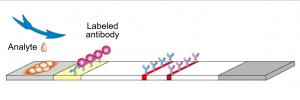Do you know the word ‘Anthropocene’? The term Anthropocene is a proposed epoch dating from the beginning of significant human impact on Earth’s geology and ecosystems. The word combines the root ‘antrhopos’, meaning ‘human’ in Greek with the root ‘–cene’, the standard suffix for ‘epoch*’ in geological time. The term was first emphasized and widely popularized in 2000 by atmospheric chemist Paul J. Crutzen, with concern about environmental issues.
Experts say human impact on Earth is so profound that a new geological epoch needs to be declared. “The significance of the Anthropocene is that it sets a different trajectory for the Earth system, of which we of course are part,” said Prof Jan Zalawicz, chair of the ICS**’s Anthropocene Working Group. From a geological point of view, what changes have humans made to Earth? Have we entered a new phase of planetary history?
*epoch : a subdivision of the geologic timescale that is longer than an age but shorter than a period
**ICS ; International Commission on Stratigraphy
***stratigraphy; a branch of geology concerned with the study of rock layers.
The geological periods basically reflect the natural patterns and changes of Earth’s history. The history of the Earth is divided up according to the geological time scale – eons, eras, periods, epochs and ages, which is set by the ICS. The longest of these are eons, and the shortest time scales are ages.
The current epoch, the Holocene, is the 12,000 years since the last ice age during which all human civilization developed. And the Anthropocene is distinguished as a new epoch either after or within the Holocene.
Geological epochs are distinguished from one another based on geological observations, such as the composition of sediment layers. To justify the identification of a new Anthropocene epoch, it must be demonstrated that evidence of change is present at such a level.
Paul Crutzen proposed the Industrial Revolution as the starting point for the Anthropocene, as analyses of air trapped in polar ice showed the beginning of growing global concentrations of carbon dioxide and methane. Recently, experts propose the beginning of the nuclear era in the 1960s as a useful date, due to the global presence of radioactive trace in sediments. However, as yet, there is no official start date for the Anthropocene.
Some scientists are completely against the idea. To many geologists, accustomed to working with rocks that are hundreds of millions of years old, the idea that a species that has been around for the blink of an eye – a.k.a human – is now a genuine geological force seemed absurd. But as the idea of the Anthropocene spread, it became harder for geologists to ignore.
Recent studies within the Anthropocene epoch show that species are becoming extinct at a significantly faster rate than for millions of years before. Scientists found that up to 50% of all individual animals have been lost in recent decades. Wildlife is dying out due to habitat destruction, overhunting, toxic pollution, invasion by exotic species and climate change. But the ultimate cause of all of these factors is human overpopulation and continued population growth, and overconsumption, especially by the rich.
Many scientists now believe humans are living through a "mass extinction," They say humans are accelerating the next mass extinction, and will encounter a serious attack on the ecosystem in the next two decades, including human life. Earth has already witnessed five extinctions, when more than 75% of species disappeared. Is a sixth mass extinction underway?
So far, the discourse of Anthropocene was mostly based in white European culture. As the “Anthropocene” implicitly blames the entire human race for a crisis, which is in fact caused by a relative few – especially by the rich, as I mentioned before – ‘who’s most responsible for the environmental ruin’ remains unsolved. As the discourse progresses, some people made an attempt to popularize the Anthropocene not only as an geological concept, but as a political, cultural discussion of the future of humanity.
One of them is Pink Chicken Project in 2017. The project suggests changing the color of all chickens on the planet to pink, by genetically modifying chicken DNA so future birds will be born with pink bones and pink feathers. It sounds strange, but the project came out of the idea that we should leave reminders for future generation of humanity’s impact on the Earth. As chickens are the world’s most common livestock animal, their bones will eventually fossilized in landfills, with the color pink.
If we understand the Anthropocene as an era in which humans are the dominant force on the planet – for good or for ill – then returning to a previous era is not a likely option; we cannot turn back the clock, but must therefore proceed into the future. How then can humans be the dominant force for good rather than a force for ill? We cannot build what we cannot imagine. Creating visions of a positive future is important work. Seeing bright spots in the work of human – for example, restoring the forests, and protecting endangered animals – can then be used to generate positive scenarios for the better future. To make it possible, we will need constant interest in the environment, and to take positive attitudes to save the Earth.
Cho Suyeon 7osooyon@gmail.com
<저작권자 © 홍익대영자신문사, 무단 전재 및 재배포 금지>





